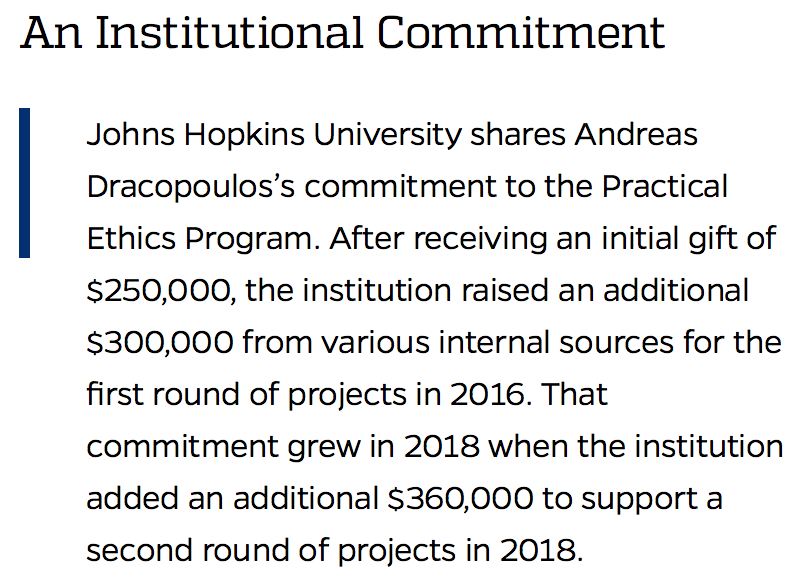The Berman Institute of Bioethics is a national and international leader in making sense of and finding answers to new ethical issues arising from rapid gains in health care, public health, and the biomedical sciences. But advances in science and technology increasingly touch aspects of our lives that go far beyond bioethics’ traditional purview.
In response, Berman Institute scholars and their colleagues across Johns Hopkins University have begun exploring contemporary ethical issues that cross academic disciplinary lines and take place in a wide range of professions and circumstances.
These efforts have been driven by the Exploration of Practical Ethics program, made possible by $250,000 in seed funding from Andreas Dracopoulos. Since launching in 2016, the Practical Ethics Program has funded 16 innovative projects, engaging faculty from every division of the university in interdisciplinary research addressing contemporary, real-world ethical challenges.
Their work has resulted in scholarly publications, media relations coverage, partnerships with government officials and industry leaders, and more than $1 million in additional external grant proposals to extend work begun in the Practical Ethics program.

